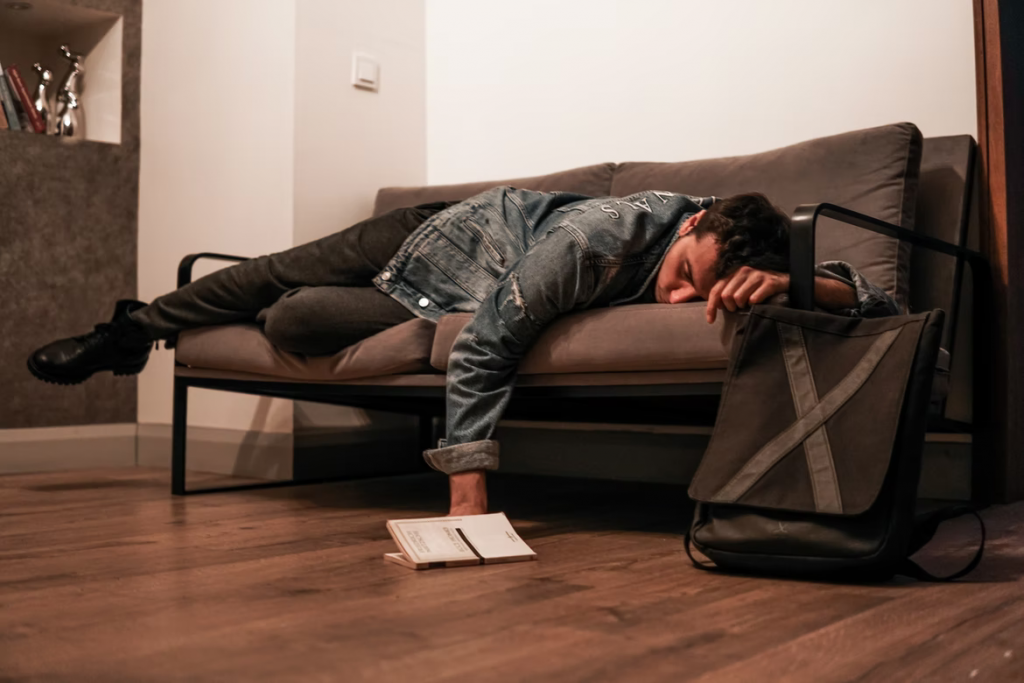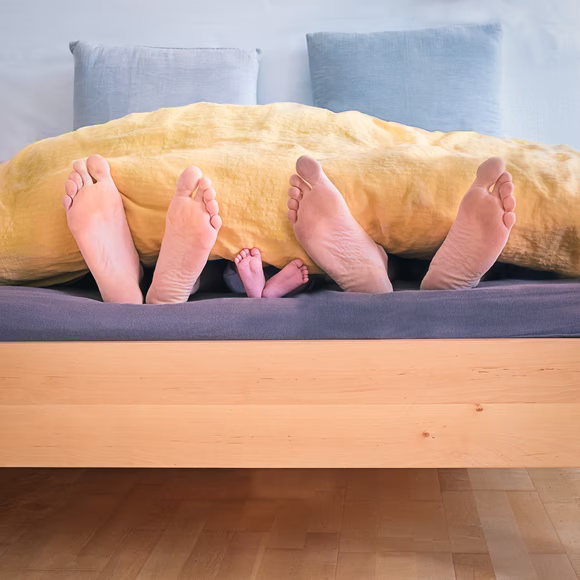You’ve probably noticed that you get a good night’s sleep when you’re ill and not feeling well. Why? It all comes down to your immune system! When we don’t feel well, our body is forced to use its energy on fighting the illness instead of getting ready for tomorrow morning. This leaves us exhausted and unable to function properly during the day. That’s why it’s important for ill people to get plenty of rest at night – because they need their energy back in order to fight off what they’re sick with!
Your Immune System Is What Makes You Feel Tired
You’ve probably noticed that you get a good night’s sleep when you’re ill and not feeling well. Why? It all comes down to your immune system! When we don’t feel well, our body is forced to use its energy on fighting the illness instead of getting ready for tomorrow morning. This leaves us exhausted and unable to function properly during the day. Getting the right bedding can also save you from restless and sleepless nights and the folks at https://puffy.com/products/puffy-adjustable-base have compiled one of the best on the market that you can look for.That’s why it’s important for ill people to get plenty of rest at night – because they need their energy back in order to fight off what they’re sick with!
Your immune system controls how much sleepiness or alertness your body needs throughout the day so it can keep functioning smoothly without collapsing from exhaustion.
Don’t Drink Coffee And Alcohol Before Bedtime
Caffeine takes a long time to leave your system, and it can take up to 12 hours for half of the caffeine consumed in coffee or one energy drink to be gone from your body. That means bedtime isn’t the best time for late-day java consumption. In addition, you might suffer sleep disruptions if you don’t wait until at least an hour after dinner before having that cup (or three) of joe. Drinking coffee too close to bedtime could interfere with falling asleep by lengthening the number of times you wake during the night as well as affecting how much deep sleep you get overall.
This also applies to alcohol. Not only does drinking alcohol before bedtime cause you to wake up during the night and decrease your deep sleep, but it also decreases REM sleep — which is when dreams happen. This means that after a night of boozing, you’re not dreaming as much as usual (and those crazy dream sequences may come less frequently).
Don’t Eat Within Two Hours Of Going To Bed
No one should eat immediately before going to sleep, but if you’re eating a meal right before bedtime it can be even worse. Your body needs about two hours or so to digest your food and get nutrients from the bloodstream into the cells that need them. Eating within two hours of going to bed will therefore lead to poor digestion at night which leads in turn to low oxygen levels in the body tissues while we are asleep. This is not a good thing for optimum health! Low tissue oxygenation during deep sleep results in increased stress hormone production throughout the night leading over time to weight gain and chronic illness. The bottom line: no dinner after six o’clock – ever! If you have been eating something less than an hour before sleeping, give yourself a few days to adjust. The result will be deeper sleep, more energy, and weight loss if that is your goal!
Exercise During The Day
In order to have a restful night’s sleep, you need to exercise during the day at least four hours before going to bed. Physical activity increases core body temperature and helps us fall asleep more easily by causing an increase in blood flow through the brain and muscle tissues where it is needed most just when we want our bodies to slow down for deep sleep that repairs tissue damage from stress hormones, regulates metabolism, boosts immunity and reduces inflammation throughout the body system.
Core body temperature naturally starts dropping about two hours after falling asleep until reaching its lowest point in the early morning – which coincides with your deepest level of slumber (and incidentally why many people feel great upon waking). Exercise raises your core body temperature so later on when you get ready for bed, your body temperature will naturally be lower and you’ll fall asleep more easily. This will not only help you sleep better that night but also improve the quality of deep sleep throughout the night by raising core body temperature during each rest cycle making it easier to reach deeper levels of slumber which results in a cumulative effect for improved health over time!
Get Some Sunlight During The Day
Finally, remember that the sun is your friend! Not only does it give you vitamin D (and other important health benefits), but also helps regulate your sleep cycle. During daylight hours our bodies release serotonin which makes us feel happy and relaxed. This sends a signal to shut down the production of melatonin – the hormone responsible for making us sleepy at night. If we don’t get enough bright light during the day, however, this can disrupt our natural circadian rhythm causing fatigue later on in the evening even if we are getting plenty of restful sleep each night because low serotonin levels will make it harder to fall asleep or stay asleep throughout the night then too much melatonin secretion may occur at night resulting in disrupted deep slumber patterns as well as excess cortisol secretion which leads to weight gain and chronic illness. Getting sunlight during the day will help regulate your sleep cycle, increase serotonin levels (which makes us feel happy) and send a signal to shut down melatonin production – all of which results in an easier time falling asleep at night!
The best thing about getting up earlier than usual is also having plenty of time in advance so there is less stress associated with rushing through every activity before work or any other important appointment. There’s nothing worse than running behind schedule because waking up late has some consequences – people feel sluggish throughout the whole day and they act like zombies while moving around aimlessly!
Recent Posts
At present, the majority of professionals living in a busy life schedule own high stress and depression problems. Counteracting the health crisis due to nervous disorders may not be an easy task for...
6 Simple Zen Steps to Stop Comparing Yourself to Other People
Whether we realize it or not, we constantly compare ourselves to others. Whether it's physically or through social media, we constantly look for signs of other people's success or failure and...


